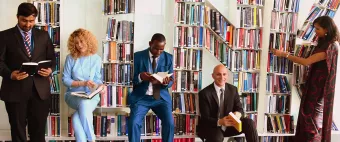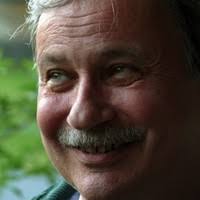Switzerland’s Unique Soft Power Connection in International Security Policy

Switzerland’s Unique Soft Power Connection in International Security Policy
Switzerland’s diplomatic influence has long been rooted in its tradition humanitarian values and dedication to fostering global peace. As a small country, it wields a form of "soft power" that transcends borders, earning respect and trust in international arenas. This soft power is exemplified through institutions like the Geneva Centre for Security Policy (GCSP), which plays a pivotal role in shaping the next generation of global security leaders.

Founded on the vision of retired Ambassador Theodor Winkler, the GCSP has, for over 30 years, been a beacon of international cooperation, training diplomats and military officers to civil society leaders, all working to solve some of the world’s most complex security challenges.
The success of the GCSP lies not only in the education it provides but in the enduring network of alumni it has cultivated—a network that, can dramatically enhance Switzerland’s role on the world stage.
A Vision for Modern Security Policy – the pioneering initiative that shaped Switzerland’s approach to international security training and the establishment of a unique network
Ambassador Theodor Winkler (“Teddy” as many in the field know him) was instrumental in the creation of the SIPOLEX course, a pioneering initiative that shaped Switzerland’s approach to international security training. Leveraging his deep connections and his academic network, Winkler responded to the urgent need of the Swiss Defence Ministry for a new generation of security policy experts. The ministry faced with a shortage of qualified personnel; he proposed a bold plan to establish a comprehensive Swiss training programme aimed at filling this critical gap.
Retd. Ambassador Theodor Winkler highlights:
“The most surprising fact about the Swiss Defence Ministry (then called the “Federal Military Department”) was that in a way it did not exist – at least not in the classical sense. There was a Defence Minister (we call our ministers Federal Counsellors), but he had hardly any civilian staff.
The infrastructure was available, however civilian expertise was rare in the Swiss Defence Ministry. Switzerland counted at the time a meagre 15 persons that had an academic background in international security policy (including both government and universities). This became ever more difficult when the international community began to evolve – notably with the advent of the Conference for Security and Cooperation in Europe (CSCE). Soon it was transformed from an annual conference into a permanent international organisation: the OSCE - Organization for Security and Co-operation in Europe. That implied more personnel for the Swiss Foreign and Defence Ministries. If the Foreign Ministry was hard pressed to find these experts, Defence simply did not have them.”
T. Winkler joined the “Federal Department of Military Affairs” in the early fall of 1981 – as a senior analyst in its Federal Intelligence Service. Specifically, he was the Head of its “Studies” Bureau, tasked with all subjects that did not fall firmly under the responsibility of one of the other major offices. He was, furthermore, a member of the Federal Council’s “Situation Conference”. He was asked by the Chief of the General Staff, Lieutenant-General Jürg Zumstein to present a proposal on how additional security policy experts could be identified.
Ambassador Winkler’s visionary leadership not only led to the formation of the SIPOLEX (Kurs für Sicherheitspolitische Experten) but also laid the groundwork for a lasting network of security professionals.
The course was designed to recruit and train top talent in international security, thereby addressing the shortage of qualified personnel. By involving high-level military and civilian officials in its development and offering a rigorous curriculum with contributions from over 100 guest speakers in its first year, the course quickly gained prestige.
“The SIPOLEX course threw the basis for solid networks”
It was also the beginning of an interesting collaboration between Switzerland’s Defence and Foreign Ministries. Expanding the course to include diplomats and officers from other countries further strengthened international security ties, boosting Switzerland’s influence and contributing to European and OSCE security. Winkler active for Switzerland’s Defence Ministry, invited State Secretary Edouard Brunner to join the course, offering it free if his department participated, which fostered inter-ministerial cooperation
The contacts established from this SIPOLEX network at the time were used to assure a high-level participation in the annual “Dolder Conferences”. The top people from NATO, the EU and the WEU, the Swedish Prime Minister, the Defence Ministers from the Netherlands and Norway, as well as highest ranking officials from the USA, Germany, and France convened every second weekend in January in total discretion in the Grand Hotel Dolder in Zürich, thus paving the way for the big conferences which would start with the Munich Security Conference. The guests of Switzerland at the conference would each draft a 2-page paper containing their personal strategic anticipation of what would happen in the year ahead. Switzerland had as a result permanent access to key international figures and the private thinking of our Western partners. This is still pursued at the GCSP’s closed “Gstaad”, “Zermatt” roundtable discussions on the European Security Architecture, the current security issues in the North Pacific Region and more.
An Untapped Powerhouse of Expertise – the GCSP Alumni Community
The GCSP’s Alumni Community is more than what most academic institutes offer. It is a powerful tool for Swiss soft power diplomacy. This global network of over 11,000 professionals offers Switzerland diplomatic connections and expertise. With roots in Switzerland's initiative to develop security policy through the SIPOLEX course and the GCSP’s three decades of specialised educational programmes, the alumni community has grown worldwide.
Ambassador Winkler explains “At the time, we were convinced that the training we offered needed a constant feature for the community in order for it to endure and thrive. He stated “Therefore, I invited all course alumni one sunny weekend to Zermatt for skiing with the intention to establish an alumni network. Not surprisingly, practically everybody came. My speech advocating the creation of an alumni organisation found under the influence of the glorious landscape a positive echo. The plan was to organise suitable events in the home countries of the members of the community and once per year, there would be a general meeting organised by a national chapter. Such meetings were in the subsequent years organised by, among others, Austria, Germany, Hungary, France.”
“Today this network is obviously much stronger.
We fitted all in a small mountain
restaurant at the time.”
That “association of alumni” of the initial member states has in modern times not ceased to grow and was developed in the past decade into the network available today and the GCSP Alumni & Community Engagement Office lead under Isabelle Gillet.
It’s geographic reach extends to 33 formal hubs, which are the GCSP’s and Switzerland’s antennas.
GCSP Alumni Community:
11’000 members in 174 nations
A pool of experts is available consisting of experts active in political advice, military analysis, transitional justice, cyber security, artificial intelligence, disarmament, peacebuilding, mediation, human rights, media, etc. ranging from ministerial to grassroot levels.
Winkler concludes “The Alumni of the GCSP must be written in capital letters in the agendas of our diplomatic staff (as friends and as access points to the host countries). It is a priceless network for its members - above all for Switzerland. – Or so one should think”. Winkler adds “The necessary room must be reserved in the programme of the Ambassador’s Conference, as well as the injection of means to correctly operate this gem for Swiss diplomacy.”
“The GCSP Alumni Community has been very useful during my recent postings, because it opens new doors to immerse in new regional contexts. It is an amazing two-way road to exchanging different points of views about security issues. It is possible to start a discussion and to receive feedback and insights from any global region because certainly you will find another GCSP Alumni member! This community, while tightening bonds and cultures, also helps to mature better thinking, resulting in better decisions.” Colonel Denilson Leitão, Military Advisor Brazilian Army.
The future of Conflict Prevention, peace operations and peacebuilding discussed in Africa with GCSP Alumni and Swiss Embassies in Mogadishu, Nairobi, Bujumbura, Yaoundé. | “Out-of-the-box solutions can be identified by bringing together diplomats and regional leaders and experts like those the GCSP has in abundance.” Lieutenant General (retd) Ioannis Anastasakis has participated in Track 2 conferences and meetings for the past 15 years. He was recently involved as an expert in a GCSP- and Swiss-facilitated diplomatic dialogue process related to the MENA region. |
Retired Ambassador Theodor H. Winkler dedicated his life to security policy and is today still actively contributing with security analysis for national and international media. He worked for a long time as a security policy expert in the Swiss Ministry of Defence. He is the initiator of the Geneva 'Maison de la paix' and is considered a key figure in the realignment of Swiss foreign and security policy in the post-Cold War era. Having been the architect of the SIPOLEX course (today's GCSP Leadership in International Security Course), he was then appointed as the first director of the GCSP in 1995-1996, before heading the Defence Ministry’s International Security Policy in its General Secretariat. Further, he chaired Switzerland’s Partnership for Peace interdepartmental office and reflection group. From 2000 to 2016, with the rank of Ambassador, he was the director of the Geneva Center for the Democratic Control of Armed Forces, GCSP’s close neighbor in the Maison de la Paix."
